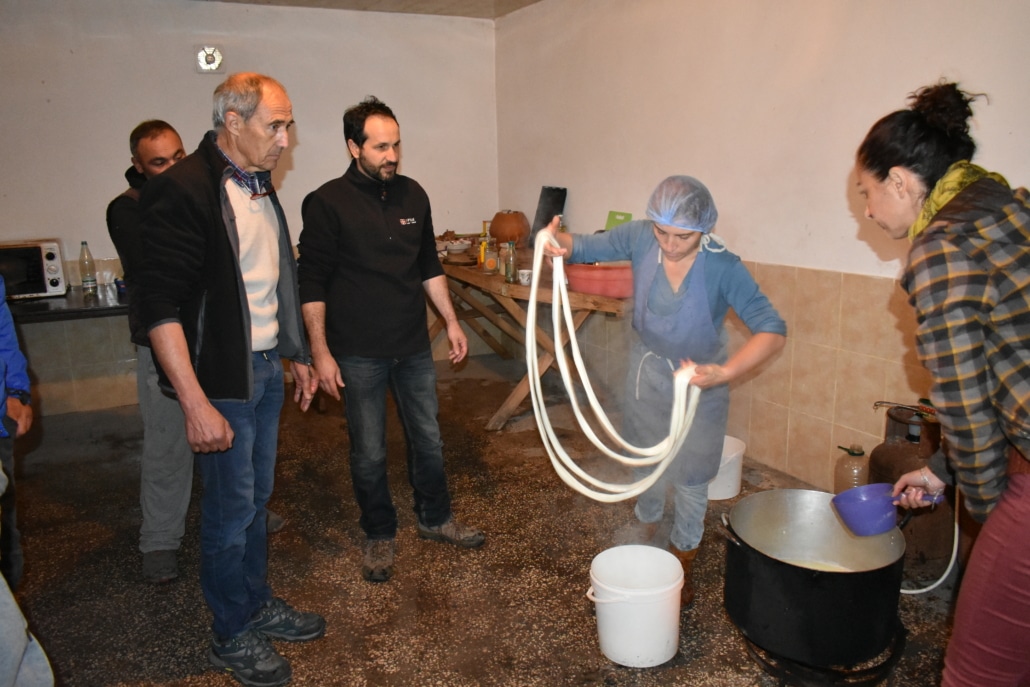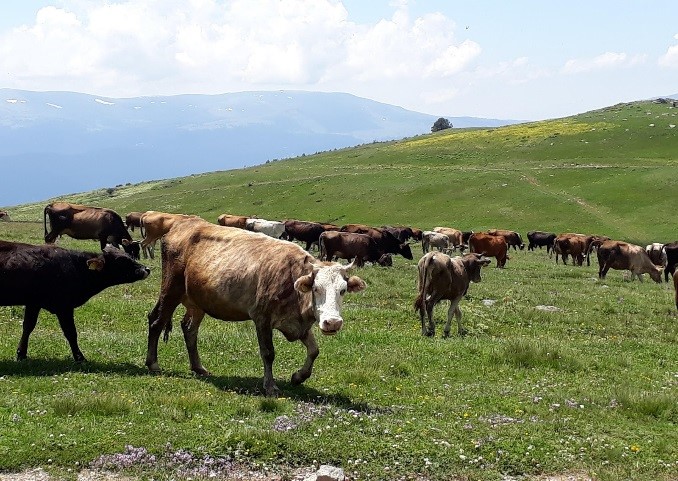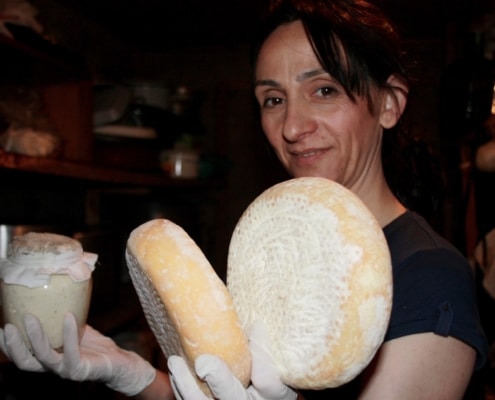Georgia has a long cheese tradition with more than 30 types of cheeses and the consumer demand is high. In the Samtskhe-Javakheti region, the vast majority of dairy farmers process their own milk on the farm and sell cheeses locally on the markets. Other farmers organize themselves into cooperative dairies to process milk together and access new markets. Farmers who are members of Ertoba, a professional organization supported by Fert and the GBDC, wish to improve their cheese processing practices to open up new opportunities.
In Georgia, cheese processing is a growing market. The farmers, with their know-how and traditions, want to strengthen their place on this market.
Faced with the lack of mastery of manufacturing processes and factors influencing the quality of a cheese, with the difficulty of producing a homogeneous and regular cheese and with the desire to get more value out of their milk by producing “different” cheeses, producers have expressed the need to be supported in improving their cheese production.
In mid-October, Fert mobilized two French agricultural professionals, Jean-François Tambourin, a sheep farmer in the Basque Country and cheese producer on his farm, and Christophe Ourricariet, a cheese technician from the same region, to meet with Georgian farmers from Ertoba and discuss their cheese processing practices and the relevance of producing cheese with higher added value.
Valorize a traditional know-how
Jean-François and Christophe met a group of women from the Samtskhe-Javakheti region who make “Teneli”, a thin cheese. These women transform their milk in their own farm. Their cheese, a tradition of the region, has a protected geographical indication at the national level but remains little valued to this day. They wish to enhance their traditions with a better recognized geographical indication. Accompanied by a GBDC technician, they will lay the foundations of a specification defining what “Teneli” is and how it should be produced. The challenge of these specifications lies in the transmission of know-how to the younger generations.
Improving the quality of cheeses
Two cooperative dairies want to improve their processing practices to produce a more consistent and regular cheese. The Derzeli cooperative has 14 member farmers. It is self-managed by the members, from the collection of milk from the farms to the processing and sale of the dairy products. The cooperative produces mainly Imeruli, a traditional white curdled and brined cheese. The farmers were able to exchange with the French cheese technician on ways to improve their practices. The cooperative plans to implement a payment for milk quality (based on the presence/absence of mastitis, fat content and protein content). The cooperative has finalized its milk and cheese quality improvement project, which includes training farmers in milk hygiene and quality and the purchase of a larger (1 ton) and more functional pasteurizer (integrated curd cutter).
Diversify your cheese production
Some farmers wish to develop cheeses with greater added value. To do this, they are individually testing new recipes. For example, Valia (breeder and administrator of Ertoba) has made some tommes cheeses for maturing. The farmers will be accompanied in this initiative by the GBDC in order to determine if the cheese corresponds to the tastes and expectations of the consumers and if the cash flow of their farm allows them to make cheeses for maturing.





